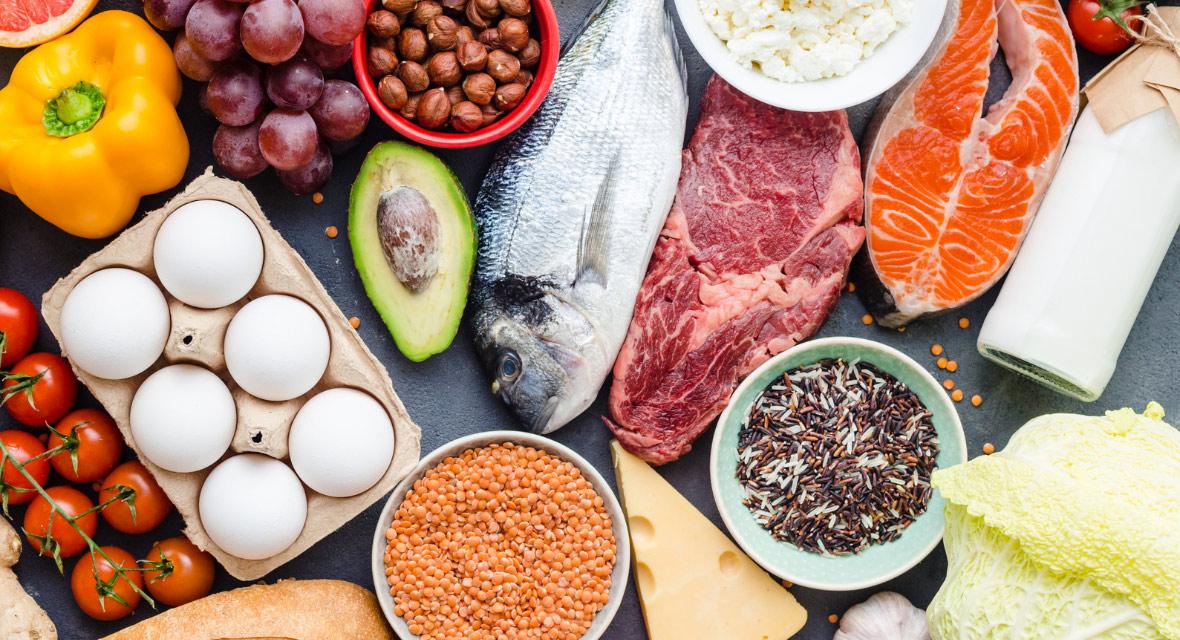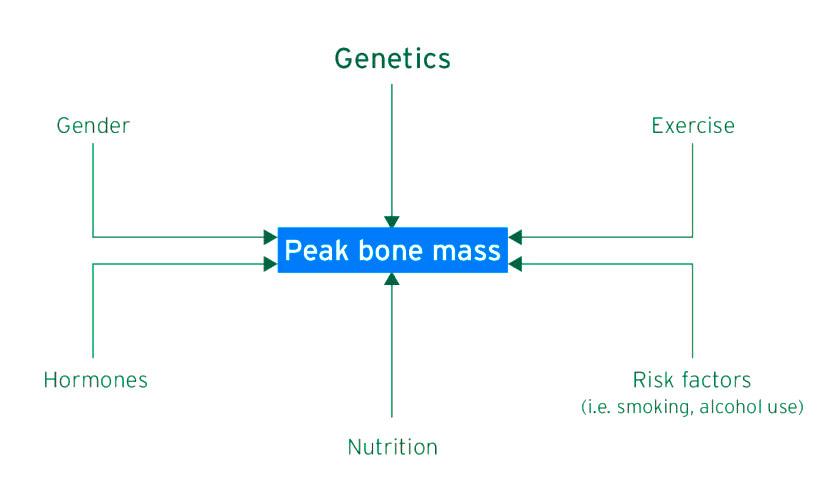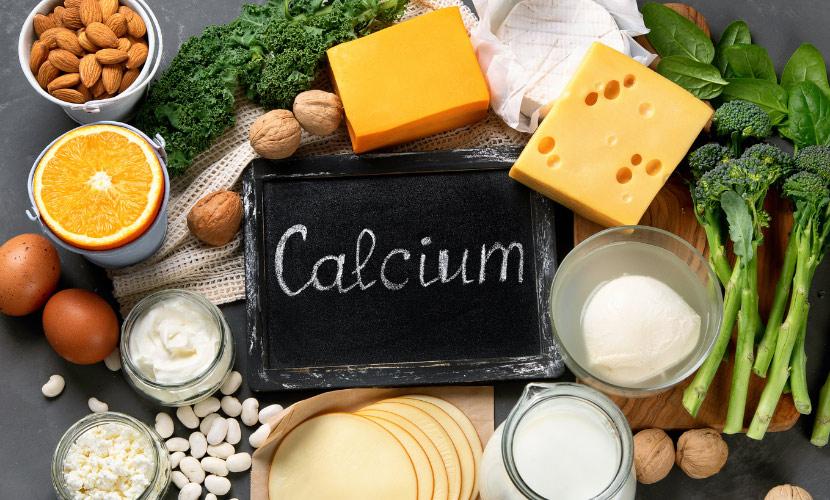🏆 As seen and loved on Shark Tank Dubai 🏆

The Role of Nutrition in Bone Health
Why is Nutrition Important for Bone Strength?
Our bones serve as the framework of our body. They help in providing structure to our bodies while also anchoring our muscles and protecting our organs. And these are just internal functions.
When it comes to external aspects, their importance is even more evident. From helping you move around to sitting straight, bones have multi-beneficiary elements associated with them.
But what exactly nutrients are at their core? What role do they play in bone strength, and why are they so important to us? We scout the answers to these questions and more as we dig deep into finding the relationship between nutrients and our bones.
What are Nutrients?
Nutrients are defined as substances that help a living organism grow, survive, and reproduce. They provide us with the energy that we need to carry on any activity and living, in general.
The primary nutrients we need for our body are proteins, carbohydrates, vitamins, fats, minerals, and water. Almost entire nutrient comes from food sources.
Why is it Necessary for Us?
For starters, we can't survive without nutrients. They are what we need to keep us going. The three main reasons why nutrients are necessary for us:
- They provide us with the energy that helps us carry out the various biochemical reactions in our bodies.
- Nutrients play a crucial role in regulating bodily functions such as temperature, thyroid activities, metabolism, sweating, and blood pressure.
- They are used for building and maintaining our cells, tissues, organs, and other bodily structures, such as bones and teeth.
It's important to understand how our bones function before diving into the nutrients that aid in bone development.
Understanding How Bones Work
Bones are rigid tissues that help form the vertebrate skeleton in many living organisms, including humans. They help protect our organs, produce white and red blood cells, support our body, provide structure, and store minerals. They are found in a variety of forms and sizes and continue to evolve as we get older.
A fascinating aspect of bones is that they continuously change. Old bones are broken down now and again, and new bones are formed. You tend to create new bones faster than you break old ones while you're young. This aids in the development of bone mass.
This process, known as bone remodeling, continues as you grow up. Most people, when they are around the age of 30, reach their peak bone mass. Nevertheless, it varies from person to person, although it typically falls around that age.
After 30, the reverse happens. You tend to break your old bones faster than you create new ones. As such, your bone mass slowly and steadily starts deteriorating. This may lead to various bone-related diseases such as osteoporosis.
This leads us to the following point: what variables have an impact on our bone health? It is imperative to be attentive to those factors as we can't give them the necessary nutrition if we don't know about them.
Factors Affecting Bone Health

The strength, development, and deteriorating rate of your bones depend on many external and internal elements. Primary among them are the following.
Physical Activities
Consider engaging in everyday physical activity, such as gym exercises, basic running, or even domestic duties. If you are physically active, you are less prone to develop osteoporosis or other bone disorders.
Age
Your body's ability to create new bones to compensate for the loss of old ones slows as you become older. As a result, beyond the age of 30, you are more susceptible to bone disorders. This is why it is recommended to focus on a healthy diet as you age.
Gender
Unfortunately, women are at a higher risk of suffering from bone-related diseases since they have fewer bone tissues compared to men. This is why you would often find doctors highly recommending calcium supplements to women in their 40s.
Hormones
Your hormones play a vital role in determining the health of your bones. For instance, women tend to lose bones at a breakneck pace after menopause due to the fall in estrogen levels, which is why it is advised to follow a specific diet to balance hormones in women. The long period of the absence of menopause increases the chance of them incurring bone diseases.
Men tend to lose bones when there is a low count of their testosterone levels. In general, irrespective of your gender, too much thyroid hormone might cause bone loss.
Alcohol/Tobacco Consumption
Regular consumption of alcohol and tobacco weakens your bones and, in the process, makes you vulnerable to multiple bone diseases.
Body Size
People with a Body Mass Index (BMI) of less than 19 or, to put it simply, skinny people or people with a small body frame are vulnerable to bone diseases since there is less bone mass to draw from as you grow old.
Genetics
If your parent or sibling has osteoporosis, you are also more likely to suffer from it.
Race
It has been noted that people with an Asian or Caucasian background are the most vulnerable group to suffer from bone-related diseases.
Medication
If you are regularly under medication, then it can severely affect your bone health. This is primarily true for people under corticosteroid medications such as prednisolone, cortisone, dexamethasone, and prednisone.
Furthermore, the use of aromatase inhibitors for breast cancer treatment, anti-seizure drugs like phenobarbital and phenytoin (Dilantin), or even selective serotonin reuptake inhibitors, proton pump inhibitors, or methotrexate, increases the risk of bone disease.
The most significant factor affecting our bones is our diet. A healthy meal plan may make a big difference in how healthy your bones are. So, next time you order food for yourself, make sure you prioritize the nutrients required for your bone.
Nutritious Food Items & Their Utilities for our Bone Health

The food items that you need to include in your diet for strengthening your bone are as follows:
Dairy Products
Dairy products such as milk, cheese, and yogurt, among others, are the leading suppliers of calcium to our bodies, which helps in keeping our bones strong.
Seeds
Seeds include bone-strengthening components, making them an excellent source for maintaining bone health, which is why they are referred to as tiny superfoods. They're also high in fiber, which reduces inflammation, aids bowel motions, and lowers cholesterol.
Nuts
Our bones require magnesium to keep calcium and phosphorous because our bones and teeth contain about 85 percent of the phosphorus in our bodies. Nuts are an excellent provider of these two nutrients. As a result, instead of snacking on junk food, eat them.
Beans
Kidney beans, edamame, black beans, and pinto beans are rich in phosphorous, magnesium, and calcium. Furthermore, they are great sources of protein as well. As a result, including them in your diet is crucial.
Fish
Vitamin D plays a crucial role in promoting bone growth and remodeling. Fish are excellent sources of vitamin D. All you fish lovers have another reason for enjoying a pescetarian diet . So, include lots and lots of tuna, rainbow trout, and salmon in your daily diet.
Cruciferous Vegetables
Suppose you are a vegetarian, no need to worry since cruciferous vegetables also contribute to the strength of your bones. Include loads of cabbage, broccoli, and green leafy vegetables rich in calcium and vitamin K.
Whole-grain Cereals
Whole-grain cereals are high in vitamin D and calcium, so make them an integral part of your diet, particularly if you want to avoid bone disorders. They also serve as great alternatives for lactose-intolerant people or those who are looking for the option of gluten free meal plan in Dubai.
Final Words
Taking care of your bones should be a top concern since if your body's primary structural foundation is weak, none of the other internal systems will function properly. So, pay attention to your food, choose a wellness meal plan, and give your body the nutrients it needs. Follow the steps outlined above to offer yourself and your bones the most incredible opportunity to live a long and healthy life.
Reach out to start your fitness journey with us!
Meal Plans
Delivery Details
Legal Information
© 2020-2026 VMeals. All rights reserved. VMeals™ is a trademark of Flip Side Restaurant and Cafe L.L.C
We accept
